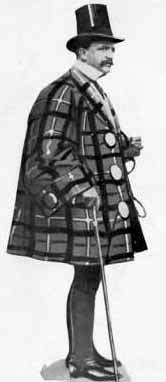This is an old revision of this page, as edited by 82.173.116.207 (talk) at 12:50, 24 December 2010 (→Dude in popular culture). The present address (URL) is a permanent link to this revision, which may differ significantly from the current revision.
Revision as of 12:50, 24 December 2010 by 82.173.116.207 (talk) (→Dude in popular culture)(diff) ← Previous revision | Latest revision (diff) | Newer revision → (diff) For the song by Beenie Man, see Dude (song). For a dude in the sense of a buddy, see Friend.
A dude is an individual, typically male, particularly somebody well dressed or who has never lived outside a big city. The female equivalent, which is used less often, is "dudette" or "dudess". However, "dude" has evolved to become more unisex to encompass both genders, and this was true even in the 1950s.
The word dude is an American English slang term generally used informally to address or refer to somebody and was once used primarily by adults but this has become a common slang term used in various age groups.
History
The term "dude" was first used in print in 1876, in Putnam's Magazine.
One of the earliest books to use the word was The Home and Farm Manual, written by Jonathan Periam in 1883. In that work, Periam used the term "dude" several times to denote an ill-bred and ignorant, but ostentatious, man from the city. The term was also used as a job description such as "bush hook dude" as a position on a railroad in the 1880s.
"Dude ranches," to which wealthy Easterners came to experience the "cowboy life," began to appear in the American West in the early 20th century.
The oldest usage was typically applied to a well-dressed male, or one who is unfamiliar with life outside a large city. These definitions later gave rise to a more technical definition: "an Easterner in the West" (United States). Thus "dude" was used to describe the prude wealthy men of the rustic western expansion of the United States during the 19th century by German settlers of the American Old East.
The word became prominent in surfer culture in the early '60s, but it wasn't until the mid-'70s that it started creeping into the mainstream. Some usages in mainly American pop culture have contributed to the spread of this word.
==Dude in excruciating pain; For ah! alas! The Prince of Wales has ceased to carry a cane, Bai Gawge! Till we learn whether His Highness orders that the cane shallupon a most excellent adventure conceived by our new friends, Bill... and Ted. These two great gentlemen are dedicated to a proposition which was true in my time, just as it's true today. Be excellent to each other. And... PARTY ON, Ashton Kutcher]] and Seann William Scott.5), one of the investigators coins the famous "Dude run!".
- 2004 - In the ABC series Lost, the character Hurley repeatedly refers to other characters, both male and female, as "dude."
References
- Bryk, William (June 22, 2005). "King of the Dudes". The New York Sun. Retrieved 2008-11-11.
- Jeffers, Harry Paul (2005). Diamond Jim Brady: Prince of the Gilded Age, p.45. John Wiley and Sons. ISBN 0471391026
- Winona Bullard, Shirley Johnson, Jerkeshea Morris, Kelly Fox, Cassie Howell. "Slang".
{{cite web}}: CS1 maint: multiple names: authors list (link) - Robert Knoll (1952). "The meanings and etymologies of dude".
- Mapes Dodge, Mary (1901). St. Nicholas. Scribner & Co. Retrieved 2008-12-15.
- Stampede Pass See Tunnel Section
- "Dude, Def. 2 - The Merriam-Webster Online Dictionary". ©Merriam-Webster. Retrieved 2007-05-08.
External links
- Dude - By Kiesling, Scott F., Published in American Speech, Vol. 79, No. 3, Fall 2004, pp. 281–305
- Dude, Where's My Dude? - Dudelicious Dissection, From Sontag to Spicoli, New York Observer
- Words@random: "dude"
- Material for the Study of Dude - The etymological origin of the word "dude" by Barry Popik, David Shulman, and Gerald Cohen. Originally published in Comments on Etymology, October 1993, Vol. 23, #1